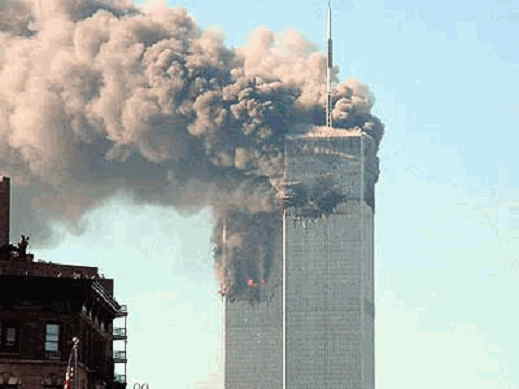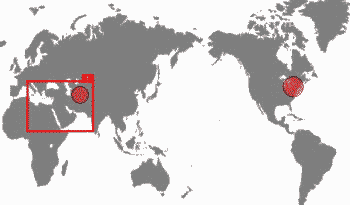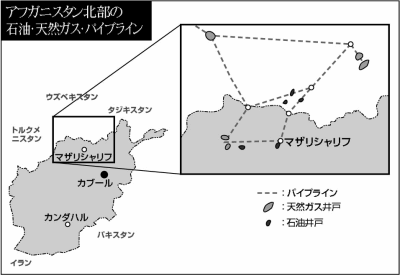|
|
| Introduction |
| I first learned of the attacks on the WTC while I was attending an international
academic meeting in Kyongju, South Korea from September 9th. I happened
to be watching ABC TV, one of the U.S. national networks, via NHK-BS2 in
my room of the Concorde Hotel and saw the World Trade Center in New York
City spewing huge amounts of smoke. Immediately after this scene, the second
aircraft crashed into the other building and went into flames. The international meeting was being held in the Hyundai Hotel with senior officials from the U.S. Environmental Protection Agency and prominent researchers in the field of dioxins from the U.S. and Europe. All the national flags at the entrance of the conference hall were lowered to half-mast. The meeting ended on the 14th, but the researchers, including my friend from Canada, could not go back to North America. After the 11th, the U.S. and UK TV networks seen in Korea ? ABC, CNN, and the BBC ? as well as NHK BS2, were all about the WTC attacks all day long. The burning and collapsing of the WTC buildings were shown repeatedly on the screen dozens, even hundreds of times. And President Bush started to mention üga war of retaliationüh. My wife has relatives who went to California from the poverty-stricken northern part of Japan in the late Taisho Era (1912~1926). They have scattered across the U.S. since then and are now living in Chicago, California and other regions on the West Coast, as well as in Honolulu, Hawaii. I also have many friends in the U.S. Army, in New York City as well as in Washington, DC. So to me it is not ügsomeone elseüfs problem.üh However, I believe we should not overlook that there are very dangerous and important other aspects to the war of retaliation that the Bush administration is attempting to begin to wage, regardless of the excuses, such as üga new war of the 21st centuryüh or ügbattle of justiceüh, that try to justify its war of retaliation against the terrorist attacks. |
 ü@Concorde hotel in Kyongju, South Korea  ü@Burning and collapsing of the WTC buildings ü@ü@ü@éoéłéĆéöéĆü@éééÖü@éqéÖéĽéëéâéłéëü@éréüéőéüéŹéĆéöéĆü@éméxéb |
| Where the U.S. War of Retaliation Against Afghanistan Is Heading |
| Immediately following the terrorist attacks involving airplanes crashing
into and burning the World Trade Center buildings in New York and the Pentagon
building in Washington DC, the Bush administration stated, ügThis is a
war.üh Furthermore, the Bush administration declared üga war of retaliationüh.
It is likely that this declaration will lead to military action to control
the entire Afghan region, which harbors Bin Laden, the suspect in the terrorist
attacks. In this case, it is unlikely that the Bush administration will
withdraw from the region with only the head of Bin Laden. As President
Bush himself has stated, the war of retaliation will be a protracted war. There is a possibility that the U.S. will start with aerial bombing using fighter planes and cruise missiles (Tomahawk) in the war of retaliation against terrorism in Afghanistan. However, Mr. Gul, a former chief of intelligence for the Pakistani military, stated as follows in the September 24 edition of the Mainichi Shimbun. He made these remarks in the course of an interview with a Mainichi reporter. ügThere are no roads, bridges or military facilities to destroy in Afghanistan. Even state-of-art stealth attack planes donüft work for hidden soldiers. On the contrary, the U.S. military will be shot down by the antiaircraft missiles given by the U.S. during the Afghan war, and the end result will be the random killing of citizens.üh (ügThe U.S. Will Repeat the Same Mistakes of the Soviet Unionüh, Mainichi Shimbun, Sep. 24, Morning Edition) What, then, will happen if the Bush administration throws its ground forces into Afghanistan? Mr. Gul said, with no hesitation, ügIf the U.S. throws in its ground forces, the Taliban will be expelled quickly and a puppet government of the U.S. will be established in Kabul. But, then, a real war will start. The Taliban will destroy communications and military facilities. The new government will be able to control only isolated spots, not the entire region. The civil war will not end.üh ügAfter that, if the war gets bogged down, and more and more of the populace is killed, anti-U.S. sentiment in the international community will be raised higher and higher, leading to renewed terrorist attacks against the U.S.üh. Mr. Gul, a veteran of many wars and conflicts, seemed to have a different viewpoint from the armchair military commentators in the U.S. and Europe. |
 ü@ü@ü@ü@ü@ü@ü@ü@ü@ü@Tohpograrpy of Afganistan  ü@ü@ü@ü@ü@ü@ü@ü@ü@ébruise missiles (Tomahawk) ü@ü@ü@ü@ü@ü@ü@ü@ü@ébruise missiles (Tomahawk) |
| Another Afghan Strategy of the Bush Administration --- Oil Interests |
| It is said that, in any period of its history, the centerpiece of U.S.
strategy in the Middle East have been oil rights. Past Middle East wars,
in particular the Gulf War, are important cases in point. On the surface,
the Gulf War was a battle for justice and a war of retaliation by multinational
forces with the then Bush administration (the father of the current President
Bush) at the center, against ügoutlawüh and ügvillainousüh Iraq which had
invaded Kuwait militarily. However, it can be inferred that this ügbattle
of justiceüh was certainly for securing the interests of the major American
oil companies. Needless to say, the father of the current President waged the Gulf War in 1991. It is well known all over the world that both Bush the father and Bush the son are from Texas and they have relationships with American oil companies. The current President Bush has been very negative in his dealing with the COP6 (the Sixth Conference of the Parties to the U.N. Framework Convention on Climate Change) to tackle global warming. NGOs (non-governmental organizations), not only in the U.S. but also in Europe and Japan, recognize that his negative attitude is related to oil capital. What, then, is the biggest reason that Bin Laden hates the U.S.? Bin Laden was born as the second son of a very rich family in Saudi Arabia. It is said that his anti-American feeling began to increase when the U.S. kept its military bases in Saudi Arabia, his home country, even after the Gulf War ended in 1991. The ostensible reason for retaining the U.S. forces in Saudi Arabia is to observe the Iraqi forces. However, it can be certainly said that their true purpose is to have military bases ready to protect the oil interests of the U.S. and Europe in the countries of the Gulf and in the Gulf region when future conflicts arise in the Middle East. Prof. Miyata, an assistant professor at Shizuoka Prefectural University knowledgeable about the Taliban and Afghan affairs, made the following remarks on a live NHK TV program. Since the end of the war between the Soviet Union and Afghanistan that spanned many years, the U.S. had been promoting a major project to transport crude oil extracted from the large oil fields in the region of the former Soviet Union north of Afghanistan to ports in the Indian Ocean via northern Afghanistan and Pakistan. During the cold war, it was the U.S. that provided a large quantity of weapons to the Afghans to counter the Soviet Union. The U.S. didnüft expect, however, that the Taliban, a group of extreme Islamic fundamentalists, would control 90% of Afghan land. The Taliban has had strong anti-American sentiments and has strengthened its alliance with Bin Laden, a son of the head of the largest general contracting firm in Saudi Arabia, who was offended by the remaining U.S. military forces. In this process, the U.S. project to transport crude oil from the former Soviet region to the Indian Ocean got stalled. And if Afghanistan and Pakistan remain under the influence of the Taliban and Bin Laden, it is almost impossible for the American major oil companies to bring crude oil to the Indian Ocean. As was the case when the Iraqi army attacked Kuwait, it is conceivable that the U.S., in particular the administration of Bush the father, insisted on a military invasion of this region because those Islamic CIS (Commonwealth of Independent States) republics north of Afghanistan that were part of the former Soviet Union and whose names end with üg?stan,üh such as Tajikistan and Turkmenistan, have many high quality oil wells. In fact, although oil fields bordering the Caspian Sea, such as Baku, are well known, a map illustrating the resources and energy sources of the world also shows many well symbols, which is to say oil wells, in Samarkand and Tashkent as well. The southern part of Samarkand borders on Afghanistan. Representative Matsunami, a member of the House of Representatives (Conservative Party), also mentioned the Afghan issue and the oil issue on a Japanese TV program on the night of the 23rd. He is one of a small number of Japanese who have extensive knowledge of Afghanistan. The obvious reason the Bush Administration is stubbornly insisting on invading Afghanistan is to retaliate against the terrorist attacks on the WTC and the Pentagon. But it is also possible that they will take advantage of the situation to secure their oil interests by establishing a U.S. puppet government in Kabul, as mentioned above. |
  ü@ ü@Pipeline project in Afganistan ü@ ü@Pipeline project in Afganistan |
| Was there a close connection between the family of oil company president Bush and the Bin Laden family? |
| The evening edition of the Asahi Shimbun on September 25th carried an interesting
article that supports my reasoning in my ügThe Folly of a U.S. War of Retaliation
Against Terrorism (2).üh What the article says is incredible, especially
since the world is still in mourning. The article is entitled ügThe Close Connection Between the Bin Laden Family and the Bush Family,üh Itüfs like a scare or black humor, since it says that the two families are connected though the oil business. Please refer to the newspaper for the details, but it says that Bin Ladenüfs oldest brother in the Bin Laden family invested in an oil company established by the current President Bush (Arbust Energy Co.) (This was also initially reported in American and British newspapers.) This indicates strongly that the Bush administrationüfs insistence on taking the war of retaliation against terrorism into Afghanistan is not unrelated to the oil fields in the rear regions of Afghanistan, to the protection of oil interests, and to securing rights. If a puppet government of Bush administration is established in Kabul, Afghanistan, and an oil transport route is constructed from those Islamic republics of the former Soviet Union whose names end in üg?stan,üh to Pakistan via the Afghan Northern Alliance, President Bush, president of a oil company, will get the best of both worlds. Without doubt, the WTC attacks are heart-rending incidents and I would like to pray for the repose of the victimsüf souls. But with such ügfactsüh in our hands, can people in the world still support a war of retaliation against terrorism? I have great doubts. On the other hand, President Putin of the current CIS, the former Soviet Union, with the support of the U.S. and European nations, has begun referring to the guerrillas in the Republic of Chechnya, whom Russia has not been able to control since the Afghan war, as ügIslamic extremistsüh and ügterrorists.üh President Putin also began to lay the groundwork with the U.S. and European nations for future wars of retaliation. If this really happens, Chechnya will be disposed of very easily. The true strategy, then, of the superpowers, the U.S. and the former Soviet Union, begins to surface. The hideous history of past imperialism could be repeated in the 21st century in order to secure their interests and positions, under the pretext of eradicating Islamic extremists and large-scale terrorism. President Bush and the military commentators are saying üg a new 21st century warüh. However, we may have to recognize that the reality has not changed and the two superpowers, the U.S. and CIS, are in the process of military, political and economic control of the world. |
 ü@ü@ü@ü@ü@ü@  |